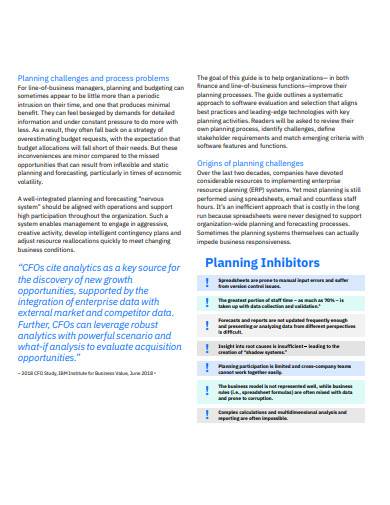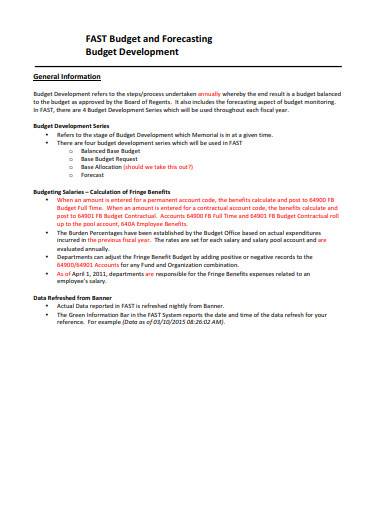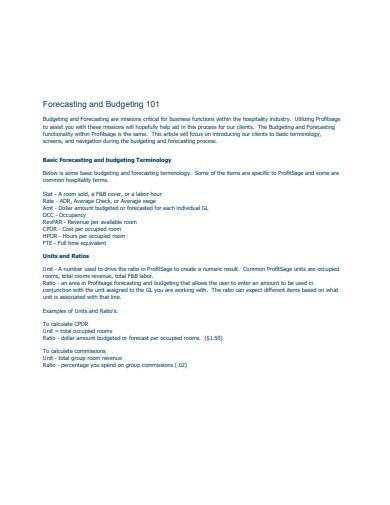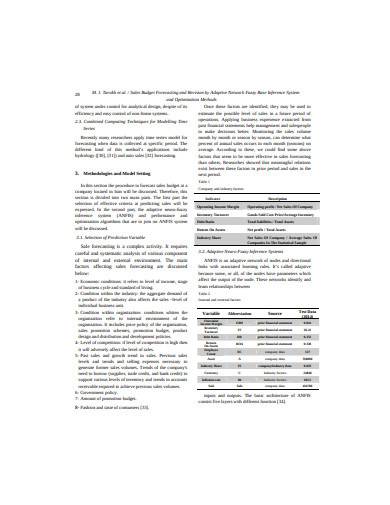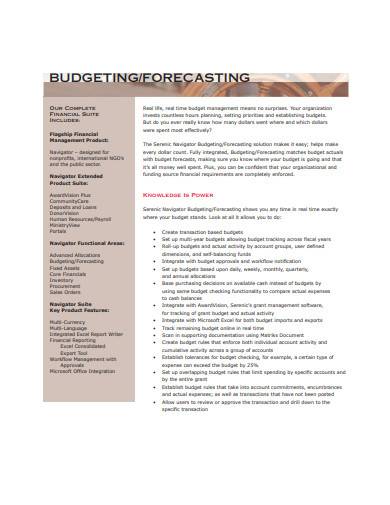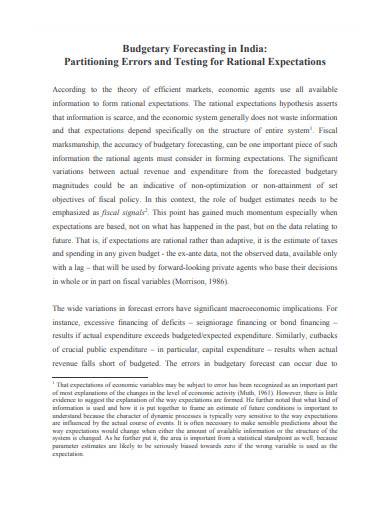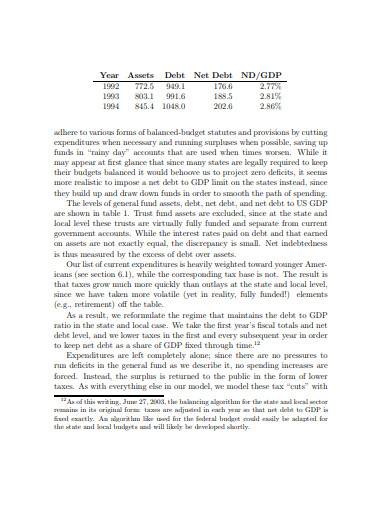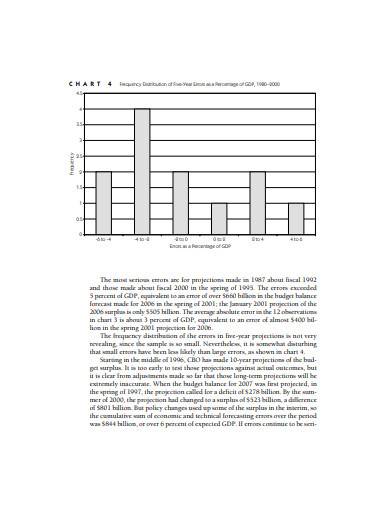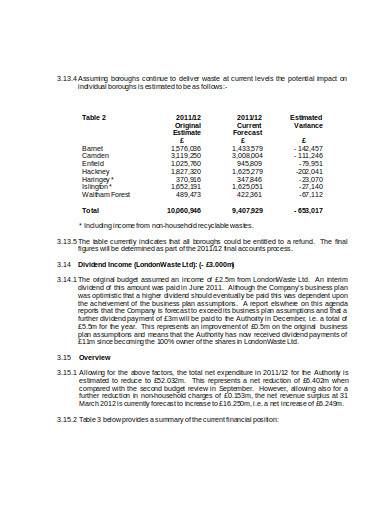A budget report is either one of the most amazing documents you’ll receive in a day or the most depressing set of numbers you’ll ever see. Though most people want to see a budget containing a whole number with multiple zeroes behind it, the sad reality is that money is not as abundant as most people would want it to be. However, you don’t have to simply ride the tides of green and hope for the best as you can predict your financial future through effective analysis.
What is Budget Forecasting?
In the business industry, revenue is the name of the game. From advertisements and marketing strategies to finding the right customers and target market, each process is geared to generate income. However, despite these efforts money is never a “sure” commodity. Like how ancient humans used to forage and hunt to find food, the modern-day business person struggles every day to find revenue for his enterprise. In this world, only the financially skilled can survive harsh droughts and tough times.
One of the skills needed to survive this new corporate-version of “survival of the fittest” is the ability to manage your financial transactions through making a budget timeline, auditing expenses, and forecasting your budget. Budget forecasting seems self-explanatory at first—sounds like trying to predict your financial future—but there are more factors involved in this process. Like predicting the weather, budget forecasting isn’t done by tossing bones in the are and reading them through that, it requires a system of intricate processes that all provide substantial data to come to a conclusion.
Warm Sunny Days, Clear Blue Skies, and Sweet Green Cash
A common gag used in cartoons for comedic effect is the accuracy of weathermen. Animated characters expressing their violent reactions to snow and hail despite the weatherman predicting clear skies on the television is quite entertaining. However, have you ever wondered if this was nothing more than just a joke? In reality, predicting weather requires the help of scientific analysis, various measuring gadgets, and years of field experience.
Budget forecasting is—unfortunately—on the same boat of meticulousness as weather forecasting. There are various methods to formulate a budget for your sales, operations, and the other monetary needs of your company. Once you learn of these techniques, you will gain the entrepreneurial ability to predict warm sunny days, clear blue skies, and sweet green cash flowing through your business.
8+ Forecasting a Budget Samples in PDF | DOC
1. Budget Forecasting Sample
2. Fast Budget and Forecasting Template
3. Forecasting and Budgeting Sample
4. Sales Budget Forecasting Template
5. Forecasting a Budget Sample
6. Budget Forecasting in India
7. Budget Forecasting Methods Sample
8. Errors Budget Forecasting Template
9. Budget Forecasting in DOC
How to Forecast a Budget
Your company’s budget is something you should always keep in mind. It’s your financial resources, after all, that dictate how often you can upgrade certain features and produce better quality goods and services. With that said, the ability to near-accurately forecast your budget’s highs and lows gives you an edge in preparing for “bad weather” and securing your company’s future.
1. Establish a Financial Atmosphere
In the same manner as conducting a scientific experiment, your budget forecast needs a control subject. As such, the first thing you need to do is establish your financial atmosphere (a.k.a. your regular estimate budget). It is recommended to use documents such as price-earnings ratios, cash flow analysis, and other such forms to measure financial values.
2. Understand Market Trends
As understood by many entrepreneurs, various times of the year yield different amounts of revenue for certain products. For example, during thanksgiving food items such as whole turkeys, cranberries, and pumpkins are in high demand. Hence, take market trends into account when forecasting your budget as an accurate action plan can potentially reap you with an abundance in greens.
3. Check Previous Records
From cash droughts to financial overflow, keeping and checking of previous records helps you create a more educated guess of the future. When you have a reference of previous situations, you have a better idea of what could happen and how it could potentially affect your business. As such, documentation of all circumstances that happen to your business is vital to further improvement and preparation.
4. Prepare Accordingly
Once you have your data, you know what to expect, and you’re confident in your budget forecast, it’s time to prepare accordingly. If you see that there will be an increase in revenue within a few months, it’s best to ready all your trump cards for it. If you predict a decrease in stocks, you can either try to resuscitate your business and mitigate the damage or cut your losses and salvage what you can. The point is that once you have the forecast, you should have an action plan for it.
If you’ve ever heard the phrase “through Hell or high water,” you’ve most probably heard it in the context of perseverance. As bitter as this may seem at first, the reality of business is that perseverance doesn’t just come from strength alone but through effective marketing strategies, financial planning, and forecasting your budget’s ability to fuel your company. At the end of the day, the greatest of corporations stand like the most well-made houses—through sunshine or storm clouds.
Related Posts
FREE 11+ Travel Budget Templates
9+ Sample Budget Report Documents
FREE 7+ Budget Timeline Samples
FREE 12+ Personal Budget Samples
FREE 10+ Small Business Budget Samples
FREE 12+ College Student Budget Samples
FREE 9+ Yearly Budget Samples
FREE 10+ Weekly Budgets
FREE 8+ IT Budget Templates
13+ Chruch Budget Templates
What Is Included in a Sales Budget?
FREE 12+ Financial Budget Samples
FREE 10+ Budget Calendar Templates
FREE 12+ Construction Budget Samples
FREE 12+ Construction Budget Samples

